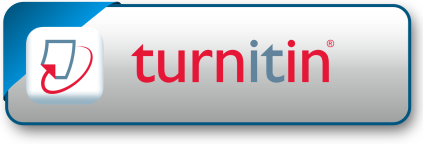TRANSFORMASI MODEL INOVATIF UNTUK PELAYANAN TERPADU SATU PINTU (PTSP) DI INDONESIA
DOI:
https://doi.org/10.24853/swatantra.15.1.%25pAbstract
Act No. 25 of 2009 on the Ministry of the public have been enacted in July 2009, seven years ago, however the betterment of public service seems still far from the goal of Act 25/2009. An example of the bad conditions of Indonesian public services is that illegal charges on public service organizer are still frequently found, hence President issued a Regulation 87 2016 about SATGAS SABER PUNGLI (task force to eradicate extortion). One Stop Service (OSS/PTSP) offers different things. According to a survey conducted by ORI on 2015, the results showed that amongst all 26 of the OSS (PTSP) only 2 of them are getting low compliance, 15 medium compliance, whilst 9 of them achieve excellent compliance. Likewise, compliance of Sub-Urban PTSP, from surveyed 57 PTSP only 14 PTSP get low compliance, 34 medium and 9 excel- lent compliance. In Urban PTSP, from surveyed 46 PTSP who only 8 BPTSP get low compliance, 19 medium, and 19 excellent compliance. This shows that the PTSP is much more obedient and is certainly ready to transform towards the attainment of a higher quality service. Referring to the proposals of Team of Deputies Administration Innovation of State Administrative Agency, with regards to survey results carried out by Ombudsman RI in 2015, PTSP included in red zones is transformed into reinforcement model, PTSP included in yellow zone is transformed into a accelerated model and PTSP included green zone is transformed into innovative models. The effectiveness of the transformation of the PTSP is proved to be very dependant to Commander within areas, as shown by the case in the East Java and South Sulawesi provinces, and cities and Regencies which regions Commanders have strong commitment, then the PTSP can change quickly and are able to initiate changes specifically for the creation of a conducive business climate. Hence, the local government should form a special Team involving the entire stake holders, including the characters, user services and academia so that the results is considered with regards of needs and relevant challenges.Keywords: OSS (PTSP), The complaint, Pungli, Compliance, Model Of Reinforcement, The Acceleration Model, A model of innovationDownloads
Published
Issue
Section
License
Copyright aims to protect the specific way the article has been written to describe an experiment and the results. SWATANTRA is committed to its authors to protect and defend their work and their reputation and takes allegations of infringement, plagiarism, ethical disputes, and fraud very seriously. SWATANTRA is published under the terms of the Attribution-NonCommercial 4.0 International (CC BY-NC 4.0). Authors retain copyright and grant the journal right of first publication (online and print) with the work simultaneously. We use the restrictive license (non-commercial) as follows:
BY (attribution): Users are allowed to share, distribute and redistribute the published article in any medium or format, with an identification of the authors and its initial publication in this journal. Authors are encouraged to post and distribute their articles immediately after publication (e.g., institutional or public repositories, personal websites). Authors are allowed to enter into additional contractual arrangements for the non-exclusive distribution of the published and an acknowledgment of its initial publication in this journal.
NC (non-commercial): Users are not allowed to use the article commercially without the permission of the authors. Authors agree explicitly that the published article is indexed worldwide in databases, repositories, and indexation services, even if these services operate on a commercial basis. Authors grant SWATANTRA explicit the right to include the published articles in databases, repositories, and indexation services. You can see examples of personal and commercial use on this link.
Below you may find the full text of the license signed by authors.
License
- License to Publish
The non-commercial use of the article will be governed by the Attribution-NonCommercial 4.0 International (CC BY-NC 4.0). The author hereby grants SWATANTRA an exclusive publishing and distribution license in the manuscript include tables, illustrations, or other material submitted for publication as part of the manuscript (the “Article”) in print, electronic, and all other media (whether now known or later developed), in any form, in all languages, throughout the world, for the full term of copyright, and the right to license others to do the same, effective when the article is accepted for publication. This license includes the right to enforce the rights granted hereunder against third parties.
- Author’s Warranties
The author warrants that the article is original, written by stated author/s, has not been published before, contains no unlawful statements, does not infringe the rights of others, is subject to copyright that is vested exclusively in the author and free of any third party rights, and that any necessary written permissions to quote from other sources have been obtained by the author(s).
- User Rights
Under the Creative Commons Attribution-Non Commercial 4.0 International (CC BY-NC 4.0) license, the author(s) and users are free to share (copy and redistribute the material in any medium or format) and adapt (remix, transform, and build upon the material). Users must give appropriate credit, provide a link to the license, and indicate if changes were made.
- Rights of Authors
Authors retain the following rights:
- Copyright, and other proprietary rights relating to the article, such as patent rights,
- The right to use the substance of the article in future own works, including lectures and books,
- The right to reproduce the article for own purposes, provided the copies are not offered for sale, and
- The right to self-archive the article.
- Co-Authorship
If the article was prepared jointly with other authors, the signatory of this form warrants that he/she has been authorized by all co-authors to sign this agreement on their behalf, and agrees to inform his/her co-authors of the terms of this agreement.








